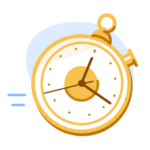To be eligible for a post-graduation work permit (PGWP), international students taking non-degree studies in Canada must pursue a government-approved field of study. On July 4, 2025, the Government of Canada announced that 119 new fields of study are newly PGWP-eligible, and that nearly 180 fields will be removed from eligibility in early 2026.
This article was updated on July 7, 2025 to reflect that the Canadian government will not be removing any eligible fields of study until 2026, rather than as of June 25, 2025 as was previously announced.
This additions align with 2025 Express Entry priorities for in-demand sectors. By matching PGWP-eligible studies to Express Entry permanent residency fields, international students can have a clearer view of which programs can prepare them for a career—and life—in Canada. Read on to learn how the field of study list works, and how it’s changed.

What is the Field of Study Requirement?
Since November 2024, the Canadian government has required all international students in non-degree studies to graduate from a program linked to jobs where there are labour shortages in order to apply for a PGWP.
Every study program has a Classification of Instructional Programs (CIP) code associated with it. The CIP code classifies how that program fits into a broader field of study. To find their program’s code, students can check the academic institution’s website or ask their institution’s team.
Then, to see if that CIP code is PGWP-eligible, non-degree international students can check the current CIP list. To be eligible for PGWP, their study program’s CIP code must be on the Field of Study list either:
- When they submit their study permit application
OR - When they submit their PGWP application
As of March 2025, international students in degree studies—whether they’re attending college or university—are exempt from the Field of Study PGWP requirement.

How has the Field of Study (CIP) List Changed?
Nearly 120 new fields of study were added in the June 25 update. We’ve tracked the new programs in the table below:
New PGWP-Eligible Programs
Note: While these tables are current as of July 2025, eligible programs are subject to change. For the most up-to-date list, check the Government of Canada’s website.

Which Study Programs are Newly Eligible for PGWP?
To address ongoing worker shortages in fields like education, health care, and the skilled trades, the Canadian government focused its Express Entry categories to align with connecting newcomers to in-demand careers. In 2025, a dedicated education category was added to the Express Entry fields. And, as the Field of Study table above shows, many education jobs are now PGWP-eligible to attract future educators.
From subject-specific instruction, like earth science and geography, to age-specific roles, like preschool and kindergarten teachers, many education programs are newly eligible for PGWP.
Several programs in the health care and social sciences fields also joined the list. A variety of programs in social work, veterinary science, and pharmacy fields are newly eligible for PGWP.
Meanwhile, engineering technologists and technicians across every engineering discipline are in high demand. These roles, which work under the supervision of a professional engineer, offer non-regulated engineering and technical services.
Several skilled trades have also become PGWP-eligible. From culinary arts to pipefitting, cabinetmaking to construction management, these roles affect how our communities are built and how our lives work.

Which Study Programs Will Likely No Longer Be Eligible for PGWP in 2026?
In early 2026, the Canadian government will once again update the PGWP-eligible field of study requirements. At that time, it’s likely that nearly 180 programs will be removed, based on the government’s initial June 2025 announcement.
Note: the fields of study listed below are still PGWP eligible as of July 2025. The Government of Canada’s June 2025 announcement removing these programs has been changed, and now the status of these fields will be revisited in early 2026.
As part of these likely changes, various agriculture and agri-food roles may no longer be eligible. They range from agricultural business and management to dairy production. As with all fields, not all agriculture-related CIPs will become ineligible for PGWP. Check for the specific code when searching for eligible fields of study!
Some health care fields will likely be off the list, too. They include kinesiology, student counselling, and several fields related to homeopathic medicine.
STEM roles may see the most widespread changes in 2026. Further agricultural roles, environmental science, digital media design, digital marketing, data modeling, and cloud computing are among the fields likely to be removed from the list. Similarly, various engineering fields may be removed, including aerospace, computer, hardware, marine, and surveying engineering, and engineering physics. In a turn from the high demand of the early 2020s, computer software and systems technology may no longer be PGWP-eligible. The same is true of data science and data analytics.
In the trades, solar and electrical power transmission could be off the list. Some roles related to property management, maintenance, and inspection may also be dropped. Machine shop work, engine machinists, and precision metalworking will likely also no longer be PGWP-eligible.
In the transport field, several air transit roles, from avionics management to engine machinists to airline pilots and crew may become ineligible for a PGWP. Logistics, materials, and supply chain management could be off the list, along with rail, marine, and ground transportation roles and commercial vehicle operators.
Reminder: If your field of study’s CIP code was valid when you submitted your study permit or when you applied for PGWP, you’ll remain eligible.
We hope this overview of PGWP field of study eligibility changes is helpful! For a quick overview of other recent changes to PGWP and the study permit process, check out our blog.
Ready to get your study abroad journey started? Explore programs in Canada on the ApplyBoard platform.



